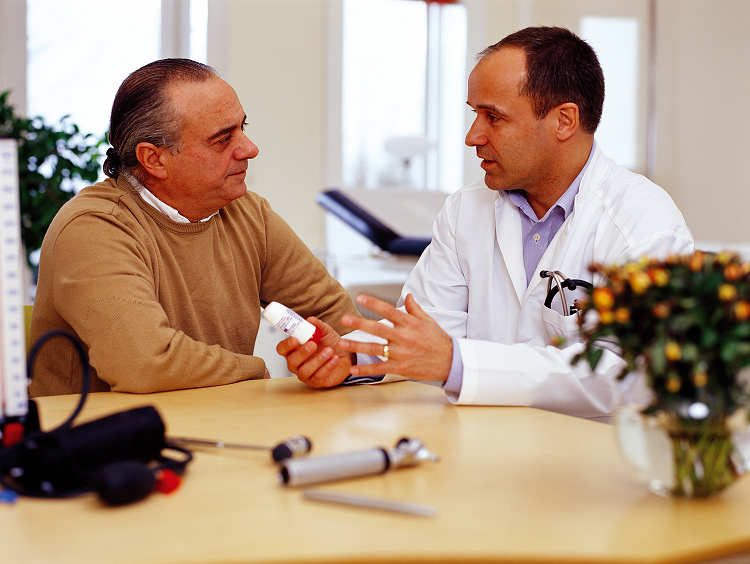5 Benefits of Having a Personal Health Record
The more involved you are in monitoring your own health, the better the results – that’s a fact. Many organizations and health practices have begun educating patients about their conditions and involving them more fully in making decisions about their care.

Photo Credit: Jorgejesus4 via Wikimedia Commons
Your Personal Health Record
One of the most effective ways to stay engaged and manage ongoing treatment is with a personal health record (PHR). A PHR is information about your health compiled and maintained by you (not to be confused with an electronic health record or electronic medical record (EHR and EMR, respectively) which are managed by the doctors and hospitals). Personal health records are essentially a comprehensive online health file containing a history of medical conditions and procedures, allergies, medications and immunizations. It keeps a detailed record of everything one could want to know in order to manage their health better.
Chances are, you have a lot of different medical records. During your lifetime, you have most likely seen many different healthcare providers such as a family practitioner, an allergist, a specialist such as a cardiologist, and depending how far back you go, a pediatrician (which is where all those immunization records are hiding). Each of these providers has a separate file of information about you. In fact, even if your providers are all part of the same health care system, they may each keep a separate medical record for you and may not be aware of the other treatment you are receiving. This can lead to an incomplete and disconnected record of your health.
Personal health record systems combine data, knowledge, and software tools to help patients become active participants in their own care.
“But it’s so much work!”
Yes, a PHR does take a little work. First, you have to collect and enter all your health information (which ADO Medical Records Assistance will help you do), then you have to keep your record current by updating it each time you see a doctor, fill a prescription, have a test or go to the hospital. But once everything is up and running, the benefits far outweigh the inconvenience.
Here are five reasons why every patient should create and monitor their own personal health record:
Saving Money
One of the biggest sources of wasteful spending in healthcare is duplicate procedures. With a PHR, patients can provide doctors the information they need right away, rather than having to re-do a test.
The savings extend beyond your pocket. According to the report from the Center for Information Technology Leadership at Partners Healthcare System in Boston, widespread use of PHRs could save the US healthcare industry between $13 and $21 billion a year in duplicated tests and administrative expenses.
Ensuring Accuracy
Each year between 210,000 patients die as a result of preventable medical mistakes, making medical errors the third-leading cause of death behind heart disease and cancer.
When you manage your health records, you ensure that the information contained in their health record is accurate, up-to-date and inclusive. Most people’s health data is dispersed and fragmented over different doctors offices and hospital facilities’ paper- and EHR-based record systems. In an emergency, a PHR allows you to quickly give emergency personnel vital information, such as ongoing treatments and conditions, previous surgeries or hospitalizations, medications you take, drug allergies, and how to contact your family doctor.
Increased Control
Regularly updating and monitoring your PHR will help ensure that the person that most needs it knows how to access it, what’s in it, and how to use it (that person would be you, just so we’re clear). Use your PHR to assist with decision-making when it comes to potential health conditions, treatment options, costs of treatment, management of chronic conditions, healthy lifestyle choices, preventive actions, and monitoring the accuracy and security of your health information.
Access to Information
Your blood type, allergies, vaccinations, past procedures- all information that can help medical professionals give you fast, efficient treatment if it’s kept in one convenient place. Managing your PHR is a good way to be ready to provide the info when it is needed, such as while traveling, during emergencies, and when visiting a new doctor.
Staying Organized
When was the last time you had a tetanus shot?
When is your next doctor’s appointment?
Some PHRs also include helpful health and wellness tools like online journals, calendars and task lists to help manage your health. Plus, a recent study found that when parents used personal health records for their children, the children were more likely to get their preventive checkups on time.
Where Do I Start?
If you plan to share information in your PHR with various healthcare providers, using an online resource will be easier than keeping paper records. It will allow you to format your information quickly, accurately and securely regardless of which or how many healthcare providers need to access it.
Activ Doctors Online offers a free 30 day trial of the personal health record.
December 25th, 2015 at 11:45 am
This is really useful information on personal health record. now a days everyone would want to have health information about themselves readily available in a digital format and completely under their control. by using PHR we can save Money. It keeps a detailed record of everything one could want to know in order to manage their health better.